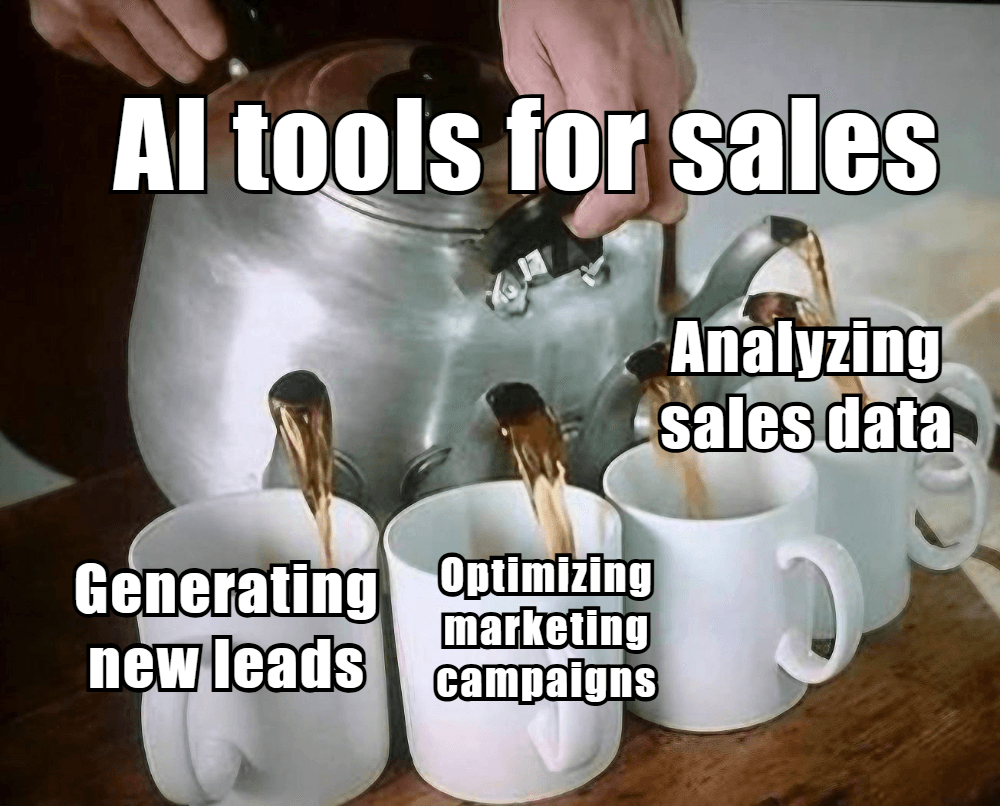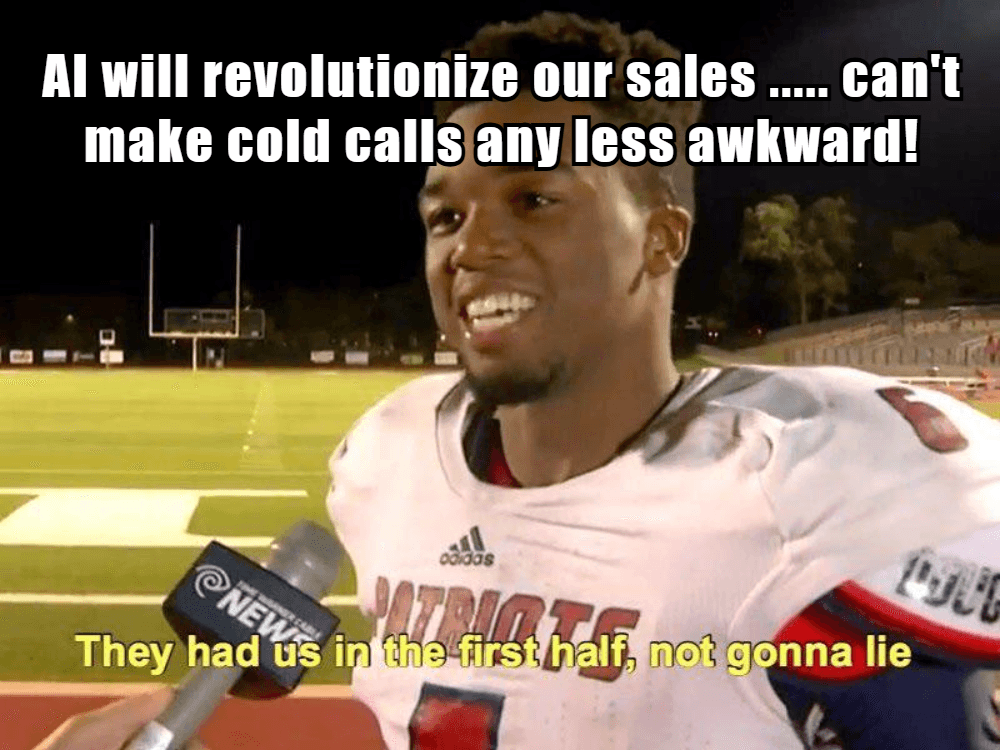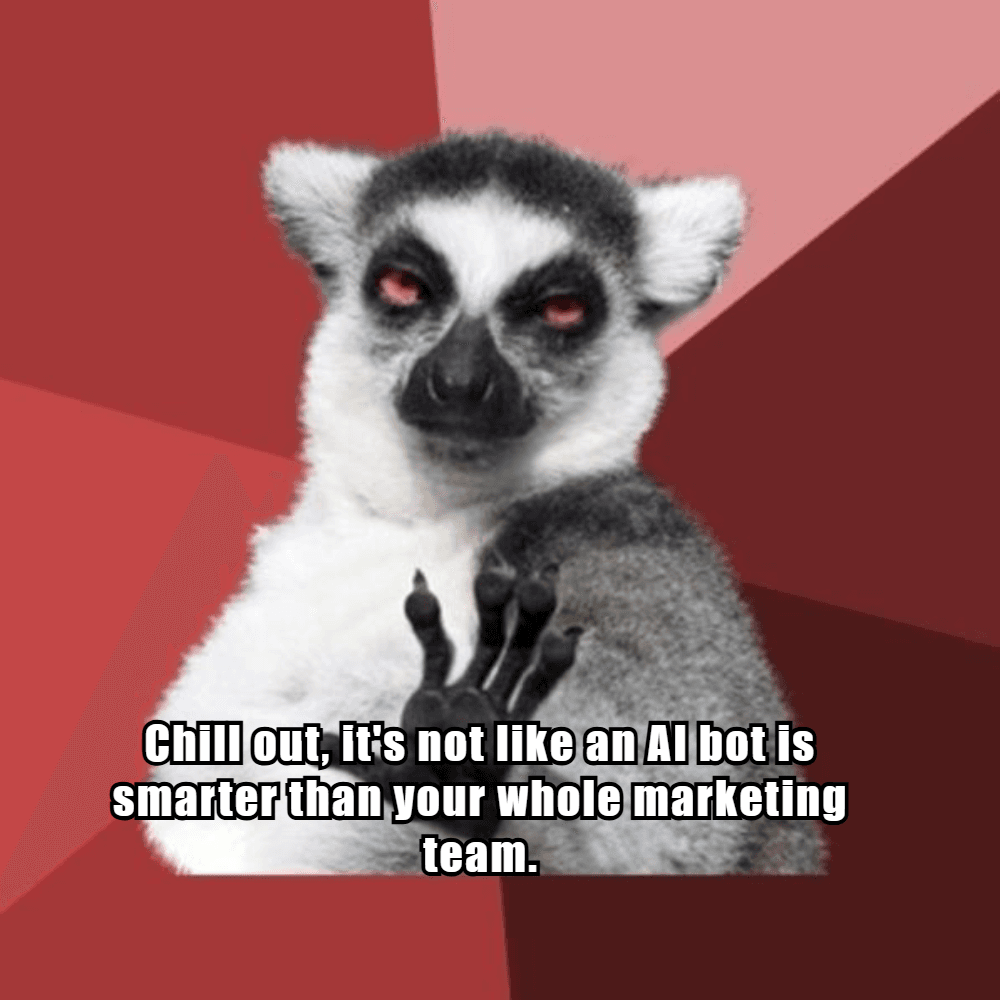Leveraging AI Tools from Automation to Insights
In the fast-paced world of sales and marketing, staying ahead of the competition requires more than just creativity and strategy. Today, businesses are leveraging AI tools to revolutionize their sales and marketing processes, making them more efficient, personalized, and effective. Artificial Intelligence (AI) is no longer just a buzzword; it's a game-changer that helps businesses automate routine tasks, analyze vast amounts of data, and predict customer behavior with unprecedented accuracy. Whether it's identifying high-value leads, crafting personalized marketing campaigns, or optimizing sales forecasts, AI tools are transforming the way companies interact with their customers and drive revenue growth.
How AI Tools Are Revolutionizing Sales

AI tools in sales are designed to streamline processes, enhance customer engagement, and boost conversion rates. Here are some key ways AI is impacting sales:
- Conversational AI: Tools like chatbots and voice assistants use Natural Language Processing (NLP) to engage customers 24/7, answering questions, nurturing leads, and even scheduling meetings. For example, Drift uses conversational AI to qualify and score leads based on specific buying signals, ensuring sales reps focus on the right prospects at the right time.
- Predictive Sales AI: By analyzing historical data and market trends, AI helps predict future sales performance. This allows businesses to make informed decisions about inventory, staffing, and budget allocation, ensuring they are prepared to meet demand and capitalize on opportunities.
- AI for Sales Prospecting: AI streamlines the prospecting process by analyzing large datasets to identify patterns and characteristics of ideal customers. This enables sales teams to focus on leads with the highest conversion potential, saving time and increasing efficiency.
Marketing has evolved significantly with the integration of Artificial Intelligence (AI). Today, AI tools are not just aids; they are transformative forces that help businesses personalize their marketing strategies, enhance efficiency, and drive customer engagement. Here's a deep dive into how AI is revolutionizing marketing across various dimensions:
Content Creation

AI tools in content creation are revolutionizing the way businesses approach marketing. These tools use Natural Language Processing (NLP) and Machine Learning (ML) to generate high-quality content quickly and efficiently. Here are some key aspects of AI in content creation:
Speed and Efficiency: AI can produce content at a speed that human writers cannot match. Tools like Article Forge and Jasper AI can generate articles, blog posts, and social media captions in minutes, allowing businesses to maintain a consistent content schedule without sacrificing quality.
Personalization: AI can analyze customer preferences and market trends to create personalized content. For instance, Jasper AI helps create engaging blog posts and social media updates tailored to specific audiences, enhancing customer engagement and conversion rates.
SEO Optimization: AI tools can optimize content for search engines by analyzing keywords, meta descriptions, and other SEO parameters. This ensures that the generated content is not only engaging but also visible to the target audience.
Generative AI

Generative AI is a subset of AI that focuses on creating new content, such as images, videos, and text, based on existing data. In marketing, generative AI is used for:
Dynamic Audience Targeting: By analyzing vast amounts of data, generative AI can identify overlooked audience segments and create personalized content for them. This enhances customer engagement and conversion rates by ensuring that each segment receives content that resonates with their interests and preferences.
Content Personalization at Scale: Generative AI allows businesses to create personalized marketing campaigns at scale. For example, companies like Coca-Cola have used generative AI to create visually stunning campaigns that combine art and live-action elements, capturing audience attention and driving engagement.
Real-Time Testing and Optimization: Generative AI can generate multiple variations of marketing content and conduct real-time testing on target audiences. This helps refine paid campaigns on the fly, ensuring that marketing efforts are always optimized for maximum impact.
Sentiment Analysis

Sentiment analysis is another powerful AI tool in marketing that analyzes customer feedback across social media, reviews, and other platforms. Here's how it transforms marketing strategies:
Understanding Customer Sentiment: Sentiment analysis provides insights into how customers feel about a brand, product, or service. This helps businesses identify areas for improvement and tailor their marketing strategies to address customer concerns and preferences.
Real-Time Feedback: AI tools can monitor customer sentiment in real-time, allowing businesses to respond promptly to negative feedback and capitalize on positive sentiment. This proactive approach helps mitigate risks and enhance brand reputation.
Personalized Marketing Campaigns: By understanding customer sentiments, businesses can develop highly personalized marketing campaigns. For instance, Spotify uses sentiment analysis to curate playlists that resonate with users' preferences, increasing engagement and loyalty.
Examples of AI in Marketing

Here are some real-world examples of how AI is transforming marketing:
BMW and Generative AI: BMW collaborated with artists to create an AI-generated art campaign, showcasing the creative potential of AI in marketing. This campaign not only highlighted BMW's innovative approach but also demonstrated how AI can enhance brand storytelling.
Coca-Cola's AI-Driven Campaigns: Coca-Cola has partnered with OpenAI to create visually stunning campaigns that fuse art and live-action elements. These campaigns have been highly successful in capturing audience attention and driving engagement.
Amazon's Sentiment Analysis: Amazon uses AI to analyze customer reviews, which informs its product development strategies. By understanding customer preferences, Amazon can enhance products and highlight these features in marketing campaigns, strengthening customer satisfaction and loyalty
Gong.io: This platform uses AI to analyze sales calls, identifying patterns and best practices that lead to successful conversions. It helps sales teams replicate these strategies across the board.
Comparison of AI Sales Tools
AI Tool | Key Features | Best For | Pricing |
Salesforce Einstein Copilot | Personalized emails, data automation, sales insights | AI-powered CRM | Contact for pricing |
Drift | Conversational AI for lead qualification | Real-time customer engagement | Custom pricing |
Gong.io | Sales call analysis, coaching | Sales performance optimization | Custom pricing |
Jasper AI | Content generation, copywriting | Marketing content creation | Custom pricing |
Cognism | AI Search for prospecting, data enrichment | B2B sales prospecting | Custom quote |
AI tools for sales and marketing are not just a trend; they are a necessity for businesses looking to stay competitive in today's digital landscape. By automating routine tasks, analyzing vast amounts of data, and predicting customer behavior, AI tools help businesses optimize their sales and marketing strategies. Whether you're looking to streamline your sales process, create personalized marketing campaigns, or predict future sales trends, there's an AI tool designed to help you achieve your goals. As technology continues to evolve, embracing AI will be crucial for driving growth and customer satisfaction in the years to come.
Frequently Asked Questions (FAQs)
Q: Will AI Replace Human Sales Reps?
A: While AI automates many tasks, it is unlikely to fully replace human sales reps. AI enhances the sales process by handling repetitive tasks, freeing up reps to focus on building relationships and closing deals6.
Q: How Does AI Improve Sales Forecasting?
A: AI analyzes historical sales data and market trends to predict future sales performance more accurately. This helps businesses make informed decisions about resource allocation and inventory management14.
Q: What Are Some Common AI Tools Used in Marketing?
A: Common AI tools in marketing include Jasper AI for content creation, Salesforce Einstein for CRM insights, and ChatGPT for brainstorming and content generation25.